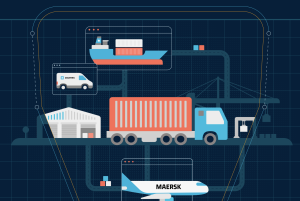 Securing space and loyalty in the hearts and minds of clients remains a formidable task for most small businesses. With rivalry in sectors intensifying, developing and maintaining positive client relationships is critical for SMEs to survive and, ultimately, thrive in the formal economy. However, considering that many entrepreneurs have not been formally exposed to marketing, it is critical that enterprise development programmes address this gap, providing them with practical tools and exposure, says Shawn Theunissen, head of CSR at Growthpoint Properties and Property Point (Growthpoint Properties’ enterprise development programme), in this month’s SmartProcurement.
Securing space and loyalty in the hearts and minds of clients remains a formidable task for most small businesses. With rivalry in sectors intensifying, developing and maintaining positive client relationships is critical for SMEs to survive and, ultimately, thrive in the formal economy. However, considering that many entrepreneurs have not been formally exposed to marketing, it is critical that enterprise development programmes address this gap, providing them with practical tools and exposure, says Shawn Theunissen, head of CSR at Growthpoint Properties and Property Point (Growthpoint Properties’ enterprise development programme), in this month’s SmartProcurement.
With Smart Procurement World fast approaching, many SMEs are preparing themselves to “do business” at the conference and expo. “While networking with and meeting potential new clients is one of the key aspects of the event, finding ways to really engage and connect with target audiences on a day-to-day basis often proves challenging for SMEs,” says Theunissen.
For most small businesses, investing a large amount of money to advertise their offerings is not a viable option when it comes to marketing themselves. “In Property Point’s experience, advertising will often not speak to the SME’s strategic marketing objectives. Additionally it does not encourage them to effectively leverage the touch-points they already have in place.”
Theunissen says that a lack of formal exposure to marketing and its relationship with sales often limits the “strategies” and “plans” put together by small businesses. “Too often entrepreneurs wait for business to come to them as opposed to actively sourcing new clients themselves. Also, we generally see that entrepreneurs neglect marketing activities because of operational responsibilities – without realising the potential medium and long-term impact.”
Additionally, for many small, black SMEs, submitting tender documents becomes a priority marketing focus, effectively keeping their businesses locked into and dependent on the public sector space.
Because SMEs are typically more flexible and responsive than larger businesses, they are often able to use more opportunistic and personal marketing tools and techniques than their larger counterparts, says Theunissen.
 “This is why we work with the businesses on our intensive two-year programme, on a one-to-one basis, to develop a marketing strategy and action plan that speaks to their specific needs. They then work to implement both while being equipped with the assistance and skills they need to do so. They are also able to draw on our supply partners for everything from branding tools to PR and social media support at a preferential rate.” In this way entrepreneurs are shown how to convert prospects into clients – and then maintain these relationships and grow them appropriately.
“This is why we work with the businesses on our intensive two-year programme, on a one-to-one basis, to develop a marketing strategy and action plan that speaks to their specific needs. They then work to implement both while being equipped with the assistance and skills they need to do so. They are also able to draw on our supply partners for everything from branding tools to PR and social media support at a preferential rate.” In this way entrepreneurs are shown how to convert prospects into clients – and then maintain these relationships and grow them appropriately.
With marketing and sales considered as imperative drivers of sustainability, SMEs must be encouraged to move from their traditional comfort zones into a space where they are able to prospect and close. This will often require dedicated support from their enterprise development partner – and going beyond the traditional to see what will work for each specific business. “By taking a more strategic and tailored approach to imparting marketing knowledge and skills, incubators can enable SMEs to spread and reduce their risk and potentially move into new market sectors. As such, it should become a priority intervention and form of support provided,” concludes Theunissen.
Visit Proprty Point’s website for more information on using procurement to build sustainable business through enterprise development.


























